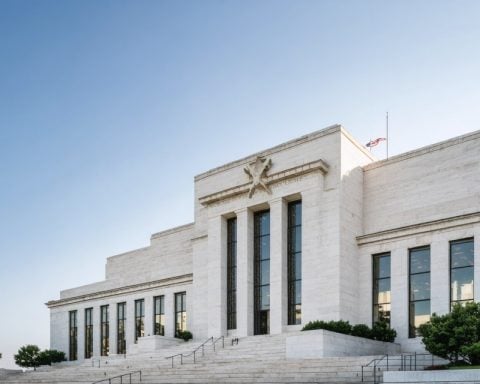- Former President Trump announced the return of American detainees from Venezuela, indicating a possible shift in diplomatic relations.
- The Venezuelan government agreed to repatriate its citizens, including individuals involved in gang activities.
- Trump celebrated the release of hostages, highlighting increased border security measures and record deportations during his administration.
- This development follows negotiations by former envoy Richard Grenell with Nicolás Maduro, leading to the release of six Americans.
- The U.S. maintains a non-recognition policy of Maduro’s regime, but this event may create opportunities for future diplomatic engagement.
- The situation could signify a new chapter in U.S.-Venezuela relations, impacting both immigration policies and national security efforts.
In a momentous revelation, former President Donald Trump announced the return of American detainees from Venezuela, signifying a potential shift in diplomatic relations. With a robust agreement in place, the Venezuelan government has committed to repatriating its citizens, including gang members, who had crossed into the U.S. illegally.
In a vibrant display of optimism on his social media platform, Trump rejoiced, stating that it was a relief to have the Venezuelan hostages home. He emphasized the historic measures being taken to strengthen border security, claiming deportations are at an all-time high for his administration. “Record numbers of illegal aliens are being sent back,” he asserted, spotlighting the collaboration with multiple countries to ensure the return of their nationals.
The backdrop to this development is the recent release of six Americans after negotiations led by former envoy Richard Grenell with Venezuelan leader Nicolás Maduro. This marks a critical turning point, as Maduro’s regime had previously detained several Americans amidst political unrest and allegations of conspiracies against his government.
As the U.S. maintains its stance of not recognizing Maduro’s regime, this breakthrough could pave the way for future diplomatic dialogues and foster safer borders.
The key takeaway here is that as tensions ease, the U.S. is poised for a renewed approach to tackling illegal immigration while ensuring national security. The combination of hostages’ return and burgeoning agreements may signal a new chapter in Venezuelan relations, with implications that extend far beyond the current political climate.
Breaking News: Historic Diplomatic Shift? Trump’s Announcement Unveils New Dynamics in U.S.-Venezuela Relations
U.S.-Venezuela Relations: An Emerging Landscape
Former President Donald Trump’s announcement regarding the return of American detainees from Venezuela indicates significant developments in U.S.-Venezuela relations. This diplomatic event not only highlights the complexities of international negotiations but also raises pertinent questions about the broader context and future implications for both nations.
Key Insights and Trends
1. Diplomatic Engagement: The recent negotiation led by Richard Grenell may suggest a potential thaw in U.S.-Venezuela diplomatic relations. Given the long history of sanctions and political estrangement, this engagement could lead to new diplomatic channels.
2. Security Measures: Trump’s emphasis on record deportations indicates a dual focus on addressing both diplomacy and border security. This could signal a change in how the U.S. addresses illegal immigration, potentially prioritizing international cooperation over stringent unilateral actions.
3. Public Sentiment and Expectations: The return of hostages creates a poignant emotional connection for many Americans affected by immigration issues and international relations. Future policies may reflect this sentiment, focusing more on humanitarian aspects alongside national security.
Pros and Cons of the Current Diplomatic Shift
Pros:
– Improved Relations: Increased dialogue could foster better understanding between the U.S. and Venezuela, promoting stability in the region.
– Humanitarian Outcomes: The return of hostages demonstrates a commitment to the welfare of individuals held in foreign countries.
Cons:
– Political Backlash: Trump’s moves may face criticism from those who argue that negotiating with Maduro legitimizes his regime.
– Complex Consequences: Increased deportations may raise tensions with immigrant communities in the U.S. and complicate domestic immigration policy further.
Most Important Questions
1. What are the implications of this diplomatic engagement for U.S. policy towards other countries in Latin America?
– This could set a precedent for how the U.S. interacts with regimes traditionally viewed as adversarial. If successful, similar diplomatic efforts may be pursued with other nations facing crises.
2. How might this shift affect the flow of immigration from Venezuela to the U.S.?
– A change in diplomatic relations could either ease the path for Venezuelans seeking asylum or lead to stricter measures, depending on the political calculus of both nations over time.
3. What are the potential security implications of repatriating gang members?
– Repatriating individuals involved in gangs could affect crime rates both in Venezuela and, potentially, in the U.S. Facilitating their return must be balanced with domestic safety concerns.
Emerging Trends in Diplomatic Relations
The Trump announcement signals a potential change in U.S. foreign policy, particularly towards regimes such as Venezuela’s. Continuous monitoring of this situation will be crucial, especially regarding how it impacts regional stability, international security, and domestic immigration policy.
For more insights into U.S.-Venezuela relations and the latest updates, visit Reuters for comprehensive coverage and analysis.
















